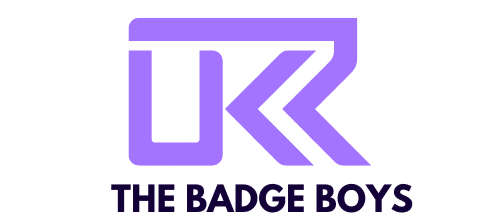What are the ethical implications of ai-driven hiring processes?
In the rapidly evolving job market, companies continually seek innovative solutions to streamline their recruitment process. The integration of Artificial Intelligence (AI) in hiring has been a pivotal advancement, offering a tech-driven approach to sourcing and evaluating candidates. However, this surge in using AI for recruitment sparks significant ethical concerns. The very algorithms designed to simplify hiring can unintentionally perpetrate bias, compromise data protection, and question the transparency of decision-making in the recruitment process. As businesses and talent acquisition teams embrace AI tools, understanding the ethical implications and mitigating potential risks become paramount.
The Promise and Perils of AI in Recruitment
AI-driven hiring is a double-edged sword. On one hand, systems equipped with machine learning and intelligent data analysis promise efficiency and a broader scope in identifying suitable candidates. On the other hand, these systems risk propagating existing biases and ethical issues. The design of AI algorithms heavily relies on the data they are trained on. If this training data includes biased human decisions, the AI will likely replicate those biases, potentially leading to unfair treatment of candidates based on gender, ethnicity, age, or other characteristics.
Avez-vous vu cela : The evolution of corporate training with vr and ar
Moreover, the use of video interviewing software, which evaluates candidates’ facial expressions and speech patterns, can further entrench bias and raise privacy concerns. Ethical recruitment must balance the benefits of these advanced tools with the need for fair and equitable hiring practices. This requires ongoing human oversight and regular assessments to ensure that AI systems serve the interests of both employers and job seekers effectively.
Navigating Bias in AI-Driven Processes
Bias in recruitment is not a new concern. However, AI-driven hiring processes can amplify these biases if not managed correctly. Algorithms may inadvertently learn to favor certain demographics over others, based on historical data sets that reflect past discriminatory hiring practices. While technology can assist in making the recruitment process more efficient, it cannot replace the nuanced judgement of human recruiters. Companies need to enforce measures that identify and reduce biases in their AI systems, ensuring that the technology is used as a tool for support rather than as the sole decision-maker.
A voir aussi : How to leverage user-generated content for branding
Transparency in how these algorithms operate is also crucial. Candidates have the right to understand how their information is being used and how decisions are made. By providing clarity around the recruitment process and the role of AI, businesses show respect for candidates’ autonomy and contribute to a more ethical hiring landscape.
Protecting Candidate Data and Privacy
Data protection is another critical ethical consideration. The use of AI in recruitment often involves gathering vast amounts of candidate data, which can include personal details, employment history, and even biometric information from video interviews. Companies must ensure that this data is collected, stored, and used in compliance with data protection laws and ethical standards. Unsecured data poses a risk not just to candidates’ privacy but also to the company’s reputation and legal standing.
Ethical recruitment mandates that candidates are informed about what data is collected, how it is used, and who has access to it. Regular audits and adherence to strict data protection policies will help prevent data breaches and misuse of personal information. Moreover, candidates should have the option to opt-out or control the use of their data, reinforcing trust and transparency in the hiring process.
The Role of Human Oversight in AI Recruitment
AI cannot—and should not—completely replace the human element in recruitment. Human oversight is essential to ensure that AI-driven recruitment aligns with ethical practices and company values. Recruiters and HR professionals must have the skills to work alongside AI tools, interpreting their outputs and making informed decisions that consider the nuances and complexities of human behavior.
Regular training and updates on AI technologies will empower human recruiters to leverage these tools effectively while maintaining ethical standards. Additionally, involving diverse teams in the development and monitoring of AI systems can help mitigate biases and promote more balanced decision-making. Human input is crucial to interpret results, provide context, and make compassionate decisions that respect individual candidate experiences.
Ensuring Ethical Transparency and Accountability
For AI-driven recruitment to be ethically sound, companies must establish transparency and accountability. This means not only being clear about how AI is used but also being accountable for the outcomes of such processes. When an AI system influences a hiring decision, companies should be able to explain the rationale behind it and ensure that the decision is fair and unbiased.
Regulators and industry bodies also play a role in enforcing ethical standards and may require companies to demonstrate compliance with guidelines on AI use in recruitment. By proactively seeking certification or accreditation in ethical recruiting practices, companies can show their commitment to responsible AI use. Additionally, feedback mechanisms should be in place to allow candidates to express concerns or grievances, ensuring that every voice is heard and considered.
In conclusion, while AI-driven hiring processes have the potential to revolutionize the recruitment landscape, they carry significant ethical implications that require careful consideration. Companies must navigate the fine line between leveraging technology for efficiency and maintaining fairness, data protection, and human dignity in their hiring practices. By addressing biases, ensuring data privacy, fostering human oversight, and promoting transparency and accountability, ethical recruitment can be achieved in the age of AI. It is imperative for companies to be vigilant and proactive in these efforts to build a recruitment system that is not only high-tech but also high-trust.
